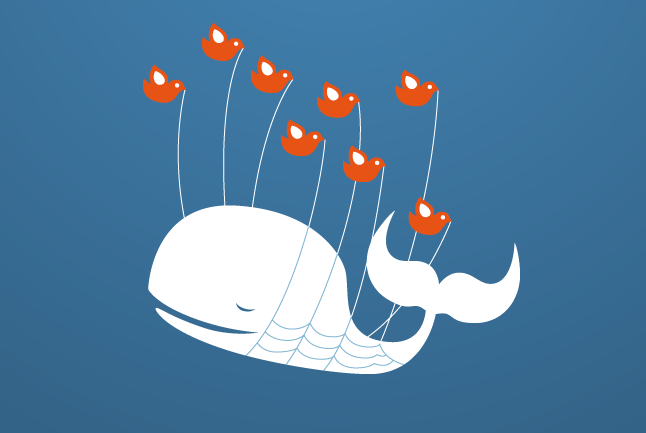The End of Twitter (as we know it)
2023-02-04
I don’t advertise this much but I was part of the team that won one of the first Shorty Awards back in 2009. A “Shorty Award” is kind of like the Golden Globes for Twitter accounts where people vote for the best Twitter accounts. It started in the heady days of Twitter when we were all figuring out what it was long before it morphed into whatever the heck it is today.
My involvement in the award we got for Mad Men accounts was partly just Tweeting as Roger Sterling of Mad Men, in character, as if he was somehow tweeting from the early 1960s. It was pretty easy for me to channel a kind of irreverent guy who makes somewhat inappropriate comments while enjoying an afternoon cocktail, (“I don’t understand what you said about ‘day drinking’ – isn’t that just drinking?”)
But how I got to Twitter and what I used it for beyond day dreams of a better dressed, socially terrible era was, naturally, tech. It was one of the first commercial APIs I built applications against, building my (now extremely dated) joke website traffic by creating a collection of one-liners that my bot could post every hour, and a link to a joke every hour on the half hour…
Adding widgets to websites where we showed the most recent company tweets was pretty much par for the course. The local pub in my neighborhood even had an integration to the Twitter API where the bartender could post when a new barrel was on (“oh, they just added the Old Rasputin on nitro!”), and delete the ones that were gone – the home page of their website always had the last 10 tweets posted because they ONLY had 10 tweets posted that showed what beers they had on tap.
But, with the investor driven drive reminiscent of 1980s corporate raiders, that creativity is going to cost you more than, “Hey kids! I’ve got an idea!” And, IMHO (to use short text speak), it’s going to be another nail in Twitter’s already very well built coffin.
Twitter is community developed content. There is no Twitter without the content that you and I create. Yes, a lot of that content is lame and self-serving like my one liner jokes that are an obvious ploy to get you to go to my website, but there are creative uses like the pub posting their tap list. Twitter becomes the “push notification” engine that I have to subscribe to in order to know what’s on tap at the Rudder.

I’m not saying Twitter ever had a very well thought out revenue model, but the idea that the best way, and often the ONLY way to monetize your API. I feel charging for access to data, without any real idea of the value of that data is a really strong indication that a company doesn’t really have a clear business model that drives that monetization.
And let’s be clear – monetization is one of those corporate buzzwords that we use because it sounds more businesslike than “get some money out of this thing.”
I break down the “let’s get money out of this thing” in three ways.
- API transactions by volume: rate limits and tiered pricing based on volume and peak rates
- High value transactions: cost per individual transaction for example executing a stock trade or providing a data processing service
- Custom currency: creating an API point system where points can be purchased, traded and created for example Starbucks pay app with rewards or Nike Fuel points
Twitter defaulted to the volume model, the “pay to play.” It assumes you see the value of the API even when they don’t, unlike the High Value model, which is “when you interact with us, we make money” model.
That “custom currency” is really what Twitter has had and something they should look at as a model, although at this point I doubt they have the time or inclination to do so. Twitter is already a gamified platform where getting likes and followers is like a small serotonin hit in the brain that makes its users briefly happy like a drug and encourages them to find their next hit.
Happiness points are so baked into social media that we forgot to ask, “What is the value of that happiness?” And more importantly, what is the value to the company. In a sense, Twitter got caught up in its own game and looked at engagement as the endgame, but forgot to ask what the value of engagement is.
Reddit has a karma model where you can earn karma over time. But they also let you buy coins and give other people karma… That’s real currency for Reddit and just social gamification for the users. Youtube “unlocks” certain features as you get more subscribers and hours of views, but they also let you pay for services through Google – either way it’s money in their pockets and it recognizes engagement as the currency.
No matter what happens with Twitter, the good old days are over. The idea of simply charging access to the API is uninspired and shortsighted. It’s an uncreative solution that you could apply to just about any business you walk into without having to consider what the business does, what the customers are doing there, and what the unique assets are this business has.
I learned a lot from Twitter, both as a user and as a developer integrating with the API. I’m sad to see people making generic business decisions when they have apparently learned nothing about how we connect and communicate in the modern world. There is amazing opportunity to create new ways to engage, and new ways to profit, but only if we stop looking at the machine (like the API) and start looking at the amazing creativity of people and communities.
Listen to the podcast: